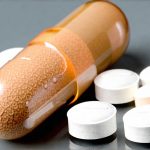Maintaining adequate hydration is fundamental to overall health, yet for individuals with sensitive urinary systems – those experiencing conditions like interstitial cystitis (IC), overactive bladder (OAB), or frequent UTIs – it becomes a significantly more nuanced challenge. Traditional recommendations to “drink eight glasses of water a day” often fall short, and can even exacerbate symptoms if not tailored to individual needs. The complexity arises from the interplay between fluid intake, bladder sensitivity, and the type of fluids consumed. Many find themselves trapped in a cycle of drinking too much, or fearing hydration altogether due to increased urgency and frequency, leading to anxiety surrounding fluid consumption. This article aims to explore smart hydration cycles – personalized approaches that prioritize bladder health alongside adequate systemic hydration, empowering individuals to regain control and improve their quality of life.
The key isn’t necessarily how much you drink, but when, what, and how consistently you hydrate throughout the day. Ignoring this careful balance can mean increased discomfort and disruption. A smart hydration cycle acknowledges that bladder sensitivity varies from person to person; it’s a highly individual journey requiring experimentation and self-awareness. This approach moves beyond generic guidelines towards a more responsive, proactive strategy designed to minimize irritation and support optimal urinary function, promoting a sense of calm and well-being rather than fear surrounding fluid intake.
Understanding the Sensitive Bladder & Hydration Connection
A sensitive bladder often reacts intensely to even small volumes of urine, leading to frequent and urgent bathroom trips. This isn’t necessarily about a lack of bladder capacity; it’s more about hypersensitivity – an amplified nerve response within the bladder walls. When you drink fluids, especially certain types (we’ll cover those shortly), this sensitivity can be heightened, triggering discomfort and urgency. The goal of smart hydration is to smooth out these peaks and valleys of sensitivity by distributing fluid intake strategically throughout the day, avoiding large boluses that overwhelm the system. This contrasts with gulping down a lot of water at once, which creates immediate bladder filling and potential irritation.
Furthermore, the kidneys play an essential role in regulating fluid balance. In individuals with sensitive bladders, kidney function can be particularly important to understand. Efficient kidney function helps dilute urine, reducing its irritant properties. Dehydration concentrates urine, making it more likely to cause discomfort. Therefore, maintaining consistent hydration isn’t just about bladder management; it’s about supporting overall renal health and minimizing the concentration of irritating substances in the urinary tract. Properly managed hydration supports both kidney and bladder function. Understanding these connections can help you create effective hydration strategies for long-term comfort.
Finally, recognizing that stress and anxiety can significantly impact bladder symptoms is crucial. Stress often leads to increased muscle tension, including pelvic floor muscles, which can exacerbate bladder urgency. A calming approach to hydration – slow, deliberate sipping rather than rapid gulping – can contribute to a more relaxed state and potentially lessen these effects. This holistic view of the hydration-bladder connection emphasizes the mind-body link in managing sensitive urinary systems.
Building Your Personalized Hydration Cycle
Creating a personalized hydration cycle requires careful observation and experimentation. It’s not a one-size-fits-all solution, but rather an iterative process of learning what works best for your body. Here’s how to start:
- Track your intake & symptoms: For at least a week, meticulously record everything you drink – type, amount, and time – along with any associated bladder symptoms (urgency, frequency, pain levels). This provides valuable baseline data.
- Identify trigger fluids: Certain beverages are known to irritate sensitive bladders more than others (see the next section). Identify which ones consistently worsen your symptoms.
- Distribute intake evenly: Instead of large volumes at infrequent intervals, aim for small, consistent sips throughout the day. Think of it as “trickling” hydration rather than “flooding.”
This initial tracking phase is vital. It’s about building self-awareness and understanding your individual responses to different fluids and timings. Don’t be discouraged if you experience setbacks; it’s all part of the learning process. Remember, consistency in tracking is key – even seemingly minor fluctuations can provide valuable insights.
Fluid Choices for Bladder Health: What to Embrace & Avoid
The type of fluid consumed has a profound impact on bladder health. While water is generally considered best, not all water is created equal (temperature matters!), and other beverages require careful consideration. Generally, avoiding acidic and caffeinated drinks is paramount. Common culprits include:
- Citrus juices
- Carbonated beverages
- Coffee & tea (even decaf can be problematic for some)
- Alcohol
- Artificial sweeteners
These substances can directly irritate the bladder lining or increase inflammation, leading to symptoms. On the other hand, fluids that are generally well-tolerated include:
- Plain water (room temperature is often best)
- Herbal teas (non-acidic varieties like chamomile or ginger)
- Coconut water (in moderation)
- Diluted cranberry juice (unsweetened – controversial but can help prevent UTIs for some, though it’s important to note that the acidity may irritate others)
Experimentation is crucial here. What one person tolerates, another might not. Pay close attention to your body’s signals and adjust accordingly. Prioritize bland, non-irritating fluids. To further refine your choices, consider exploring options for urinary stability.
Managing Nighttime Hydration & Reducing Nocturia
Nocturia – frequent nighttime urination – is a common concern for those with sensitive bladders. It significantly disrupts sleep and can exacerbate daytime symptoms. To manage this:
- Reduce evening fluid intake: Gradually decrease your fluid consumption 2-3 hours before bedtime.
- Avoid diuretics: Eliminate caffeinated beverages and alcohol in the evening.
- Elevate legs during the day: This helps reduce fluid retention in the lower extremities, minimizing nighttime urination.
- Empty bladder completely before bed: Ensure you’ve fully emptied your bladder before going to sleep.
It’s also important to rule out underlying medical conditions that could contribute to nocturia, such as diabetes or heart failure. If these strategies don’t provide relief, consult with a healthcare professional. Nighttime hydration management is about proactive prevention. For those seeking additional support, slow hydration schedules can be particularly helpful.
Creating a consistent bedtime routine and understanding how to adjust your fluid intake throughout the evening are vital steps toward improved sleep quality and better bladder control. Remember, small changes can make a significant difference in managing nocturia and regaining peaceful nights.
Furthermore, incorporating mindful practices into your daily routine can help manage stress levels that often exacerbate urinary symptoms. Techniques like deep breathing exercises or meditation can promote relaxation and reduce pelvic floor muscle tension. A holistic approach to hydration – combining strategic fluid intake with stress management – is key to long-term well-being.
Finally, don’t hesitate to seek guidance from a healthcare professional if you’re struggling to manage your symptoms on your own. They can provide personalized recommendations and help rule out any underlying medical conditions. With the right knowledge and support, you can regain control of your bladder health and improve your quality of life.
To optimize your hydration habits for overall urinary wellness, consider exploring mindful hydration as a daily ritual and embracing strategies that promote both physical and emotional well-being.
And remember to assess your overall diet alongside your hydration habits, focusing on smart grocery choices for bladder wellness to support optimal urinary function.





















